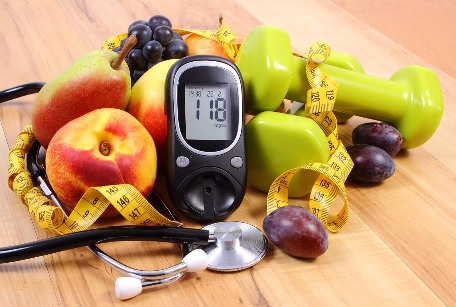Diabetes – Your Choices do Matter

What is Diabetes?
Diabetes is a life-long disease that affects the manner in which the body handles glucose, a kind of sugar, in the bloodstream. Most people with the diabetic conditions have type 2. There are about 27 million people in the U.S. with it. Another 86 million have pre-diabetes: Their blood glucose is not normal, but not high enough to be diabetes yet.
The pancreas organ makes a hormone called insulin. It regulates the body’s cells to develop glucose from the food you eat into energy. People with type 2 diabetes make insulin, but their cells don't use it as well as they should. Doctors call this insulin resistance. Initially, the pancreas makes more insulin to try to get glucose into the cells. But eventually it can't keep up, and the sugar builds up in the blood instead.
The following symptoms of diabetes are typical. However, some people with type 2 diabetes have symptoms so mild that they go unnoticed. Some people may not notice anything until the disease has progressed and started to do its damage.
Why should I care?
Diabetes is one of the leading causes of disability and death in the US. Diabetes related disabilities can include heart disease and debilitating strokes, kidney failure and permanent dialysis treatments, blindness, nerve damage and pain, and many other unpleasant complications if the disease is ignored.
Common symptoms of diabetes (type 2):
With type 2 diabetes, there may not be any obvious symptoms, however the following are some to be aware of:
-Feeling very thirsty very often. This might be the first sign noticed.
-Urinating often
-Frequent yeast infections
-Feeling very hungry - even though you are eating
-Extreme tiredness or fatigue
-Blurry vision- high sugar levels pull fluids from the body’s tissues, including the eyes.
-Cuts/bruises that heal slowly
-Tingling, pain, or numbness in the hands/feet
Risk factors
-Have a family history of type 2 diabetes
-Had gestational diabetes or gave birth to a baby weighing more than 9 pounds
-Have polycystic ovary syndrome (PCOS)
-Are African-American, Native American, Latino, or Pacific Islander
-Are overweight or obese, especially around the middle (belly fat)
-Have high cholesterol, high triglycerides, low HDL cholesterol, and a high LDL cholesterol
-High blood pressure
-Don't exercise, smoking, stress, sleep issues
-Are older. People over 45 are most likely to get it.
What can you do?
If you have some of the risk factors, ask your doctor to screen you for diabetes.
Lose weight. If you are overweight, dropping just 10% of your weight can cut your risk of type 2 diabetes in half. Eating smaller meals is also helpful in keeping blood sugar from spiking.
Get active. Moving muscles use insulin. Thirty minutes of brisk walking a day will cut your risk by almost a third. Take the stairs, park a little further away from the office door and try to find and vary enjoyable activities to keep it interesting. Talk with your doctor if you want to change your exercise plan dramatically.
Quit smoking. Consult your doctor to avoid gaining weight, so you don't create one problem by solving another.
What food you eat is very important! Tend towards lower sugar and carbohydrate foods, and shade towards higher protein ones. Avoid trans and saturated fats and limit red and processed meats. Recognize that “Diet” drinks may actually make you crave sugar and carbohydrates more. Water and unsweetened teas may be a safer alternative. Read the food labels on packaging – the actual content of some “healthy” foods may surprise you, and don’t be fooled by packages that use unrealistically small serving sizes to define themselves as “healthy.” Cutting back on alcohol consumption may be helpful. Even if you make smaller changes, at least they will be moving in the right direction.
Helpful Resources
Your Doctor! Talk with your doctor about your blood test results, and ask for recommendations. Try hard to follow them. Every small thing you do does matter!
www.diabetes.org
http://www.hormone.org/diseases-and-conditions/diabetes
http://www.who.int/diabetes/action_online/basics/en/index1.html
Copyright 2016, AGIS Network, Inc.